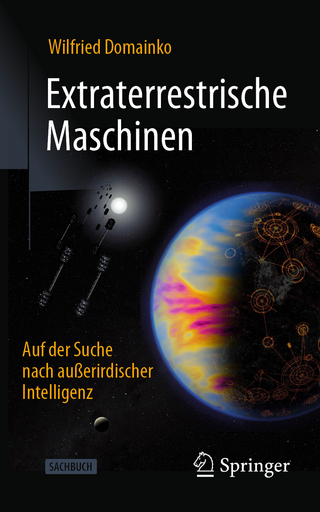
Active Galactic Nuclei
Princeton University Press (Verlag)
978-0-691-01151-6 (ISBN)
- Lieferbar (Termin unbekannt)
- Versandkostenfrei
- Auch auf Rechnung
- Artikel merken
This is the first comprehensive treatment of active galactic nuclei--the cosmic powerhouses at the core of many distant galaxies. The term active galactic nuclei refers to quasars, radio galaxies, Seyfert galaxies, blazars, and related objects, all of which are believed to share a similar central engine--a supermassive black hole many times the mass of the Sun. Astrophysicists have studied these phenomena for the past several decades and have begun to develop a consensus about many of their properties and internal mechanisms. Julian Krolik, one of the world's leading authorities on the subject, sums up leading ideas from across the entire range of research, making this book an invaluable resource for astronomers, physicists interested in applications of the theory of gravitation, and graduate students. Krolik begins by addressing basic questions about active galactic nuclei: What are they? How can they be found? How do they evolve? He assesses the evidence for massive black holes and considers how they generate power by accretion.
He discusses X-ray and g-ray emission, radio emission and jets, emission and absorption lines, anisotropic appearance, and the relationship between an active nucleus and its host galaxy. He explores the mysteries of what ignites, fuels, and extinguishes active galactic nuclei, and concludes with a general review of where the field now stands. The book is unique in paying careful attention to relevant physics as well as astronomy, reflecting in part the importance of general relativity to understanding active galactic nuclei. Clear, authoritative, and detailed, this is crucial reading for anyone interested in one of the most dynamic areas of astrophysics today.
Julian H. Krolik is Professor of Physics and Astronomy at The Johns Hopkins University. He has written widely on theoretical astrophysics, specializing in active galactic nuclei.
PrefaceGuide for Readers1What Are Active Galactic Nuclei? And Why Does Anyone Care?32How to Find AGNs223Evolution424Global Energetics and Black Holes685Black Hole Physics906Spherical Accretion1207Accretion Disks and the Optical/Ultraviolet Continuum1358X-ray and [gamma]-ray Emission1969Radio Emission and Jets25610Emission Lines30911Intrinsic Absorption and Outflows39912Anisotropic Appearance and Unification of Disparate AGN Varieties42413Properties of AGN Host Galaxies46414Onset and Fueling49415Where We Stand530App. ABasic General Relativity533App. BBasic Magnetohydrodynamics537App. CShocks and Other Discontinuities542App. DLuminosity Functions and Other Population Statistics552App. EThe Tensor Viral Theorem559App. FKinematics in an Expanding Universe566References573Index589
| Erscheint lt. Verlag | 10.1.1999 |
|---|---|
| Reihe/Serie | Princeton Series in Astrophysics |
| Zusatzinfo | 8 halftones 111 line illus. |
| Verlagsort | New Jersey |
| Sprache | englisch |
| Maße | 152 x 229 mm |
| Gewicht | 851 g |
| Themenwelt | Naturwissenschaften ► Physik / Astronomie ► Astronomie / Astrophysik |
| Naturwissenschaften ► Physik / Astronomie ► Relativitätstheorie | |
| ISBN-10 | 0-691-01151-6 / 0691011516 |
| ISBN-13 | 978-0-691-01151-6 / 9780691011516 |
| Zustand | Neuware |
| Informationen gemäß Produktsicherheitsverordnung (GPSR) | |
| Haben Sie eine Frage zum Produkt? |
aus dem Bereich


